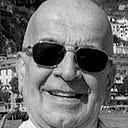Salman Rushdie and the Charm of Catastrophe after the Fatwa
February 14, 1989, St Valentine Day.
At a memorial service in London for the writer Bruce Chatwin, Paul Theroux leaned forward and said to his friend Salman Rushdie, sitting in the pew in front of him, “I suppose we’ll be here for you next week, Salman.” It was Valentine’s Day, and that morning a BBC reporter had called Rushdie and asked, “How does it feel to know that you have just been sentenced to death by Ayatollah Khomeini?” Khomeini’s fatwa against Rushdie and “all those involved in” the publication of his novel “The Satanic Verses” drove the author into hiding for much of the next decade, which he later wrote about in “Joseph Anton”, a memoir named after the police alias he created from the first names of Conrad and Chekhov.
Fiction after the Fatwa: Salman Rushdie and the Charm of Catastrophe proposes for the first time an examination of what Rushdie has achieved as a writer since the fourteenth of February 1989, the date of the fatwa. This study argues that his constant questioning of fictional form and the language used to articulate it have opened up new opportunities and further possibilities for writing in the late twentieth and early twenty-first centuries. Through close readings and intensive textual analysis, arranged chronologically, Fiction after the Fatwa provides a thought-provoking reflection on the writer’s achievements over the last thirteen years. Aimed principally at academics and students, but also of interest to the general reader, it engages with the specific nature of the post-fatwa fiction as it moves from the fairy-tale world of Haroun and the Sea of Stories to the heartbreaking post-realism of Fury.
